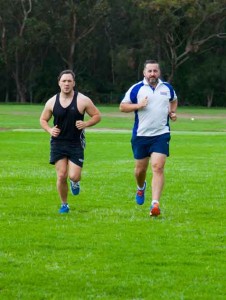[cherry_row]
[cherry_col size_md=”12″]
Health
Health comes from the latin word ‘sanitus‘ meaning freedom from disease; wellness; well-being (physical or mental); toast to wish for the well-being of a person or good for physical and mental well-being; that maintains good physical and mental well-being. To many of us health means not being sick or unable to perform daily tasks. It differs for everyone but really it just means being physically and mentally well.
Well Being
Well being comes from the latin word ‘salus‘ meaning state of being healthy and happy, welfare, contentment. Both these phrases are important in today’s society as many people spend a lot of time and money in the pursuit of health and well-being. But truly what does this mean? Is it living comfortably wanting for nothing, having good family and friends, providing everything for your children and loved ones?
So here are seven compelling reasons it is important to exercise:
- You’ll slash your risk of heart disease, stroke and type 2 diabetes
- Switching from being inactive to doing 30 minutes of moderate intensity exercise a day (eg brisk walking), can reduce your risk of heart disease, stroke and type 2 diabetes by up to 40 per cent. Since heart disease is still the number one killer in Australia, it could arguably be the most productive 30 minutes in your day.
- You can half the time you spend exercising and cut your risk of these health conditions further still, by exercising at a higher intensity (for example running instead of walking).
- You’ll reduce your risk of certain cancers (and their recurrence)
- Being a regular exerciser reduces your risk of colon, prostate, lung and gastrointestinal cancer if you’re a man, and breast and endometrial cancer if you’re a women.
- It is also known that resuming regular exercise after cancer treatment can improve your long-term prognosis if you’ve had cancer. There’s even growing evidence that if you’re currently undergoing cancer treatments such as chemotherapy, radiotherapy and surgery not only is exercise safe, but it can also lead to significant improvements in day-to-day functioning, intensity of symptoms, fitness, and overall health-related quality of life.
 You’ll keep your bones strong.
You’ll keep your bones strong.
- Moving our bodies exerts forces on bones that make them grow strong. If you don’t want bones that become brittle and prone to fractures later in life, you need to exercise before your later years, ideally throughout your whole life. But some types of exercise are much better for bones than others.
- Weight-bearing exercise like jogging, dancing, hiking and stair climbing is great for bones, but non-weight-bearing forms like cycling and swimming aren’t (although they’re still brilliant for fitness). Bones also respond well to resistance exercise (involving machines or free weights). And all other things being equal, the higher the impact of your exercise, the more the bone will be stimulated. So jogging or running is better than walking, if you can manage it. But there are still exercises you can do to build bone if you have joint problems that make high impact exercise painful
- It can help you ward off dementia
- Protecting yourself against dementia involves having a brain-healthy lifestyle and exercise is one of the key elements of this. It’s partly because exercise helps keep your blood vessels in good shape, says Dr Maree Farrow, a neuroscientist and research fellow with Alzheimer’s Australia says.
- “The blood vessels in your brain are absolutely vital, and the healthier we can keep those, the better off we’ll be. But studies also show physical activity helps with growing new brain cells and new connections between brain cells. It also boosts the levels of some chemicals in the brain that help keep brain cells healthy.”
- You’ll give your immunity a boost (usually)
- Overall, regular exercisers report fewer colds and other flu-like bugs than their inactive peers, says the Australian Institute of Sport and the American College of Sports Medicine. And when you do moderate to vigorous exercise (eg brisk walking, cycling, swimming, play a sport), there are several positive changes in your immune system, including enhanced movement of important immune cells throughout the body.
- Although these changes are temporary, each exercise session represents a boost that reduces the risk of infection over the long-term.
- But if you exercise hard or for a long period of time, there may be a window afterwards when your immunity is suppressed and you are more likely to catch a cold or other bug. Says the AIS’s Dr David Pyne: “Basically in the hours and the day after, you need to be mindful of that.” However, the odds of becoming sick can increase two to six-fold for up to two weeks after extreme exercise events, such as marathon runs.
- You’ll sleep better

- Exercise can definitely help you sleep better but it’s all about the timing, says Australia’s Sleep Health Foundation. Exercising first thing in the morning is best for most people to improve their sleep at night; however evening exercise can also help so long as you aim to be finished no less than two hours before your bed time. Any later can have a stimulating effect.
- All exercise is good, the foundation says, however vigorous, aerobic exercise is the type most associated with an increase in sleep quality. And exercise is one of the few things we can do to improve the amount of deep sleep you get – that is, the phases of sleep scientists call stages 3 and 4, which are the phases most closely associated with feeling refreshed when you wake.
- Your mood and mental health will improve
- When it comes to the mind, exercise is a wonder drug says Dr Nicola Burton, senior research fellow in the University of Queensland’s school of human movement studies.
- “We’re not only talking about preventing poor mental health or treating it, but promoting good mental health. Even if you don’t have depression or anxiety or a serious mental illness that you want help managing, you can enhance your wellbeing and vitality.”
- This is because exercise can boost mood, concentration, alertness, and even make you more optimistic.
Indeed not only do regular exercisers have better mental health and emotional wellbeing and lower rates of mental illness, but studies that track people over time show taking up physical exercise seems to reduce the risk of developing mental disorders. You could say it’s a no brainer. To see what services could suit your needs simply click our services tab
[/cherry_col]
[/cherry_row]
